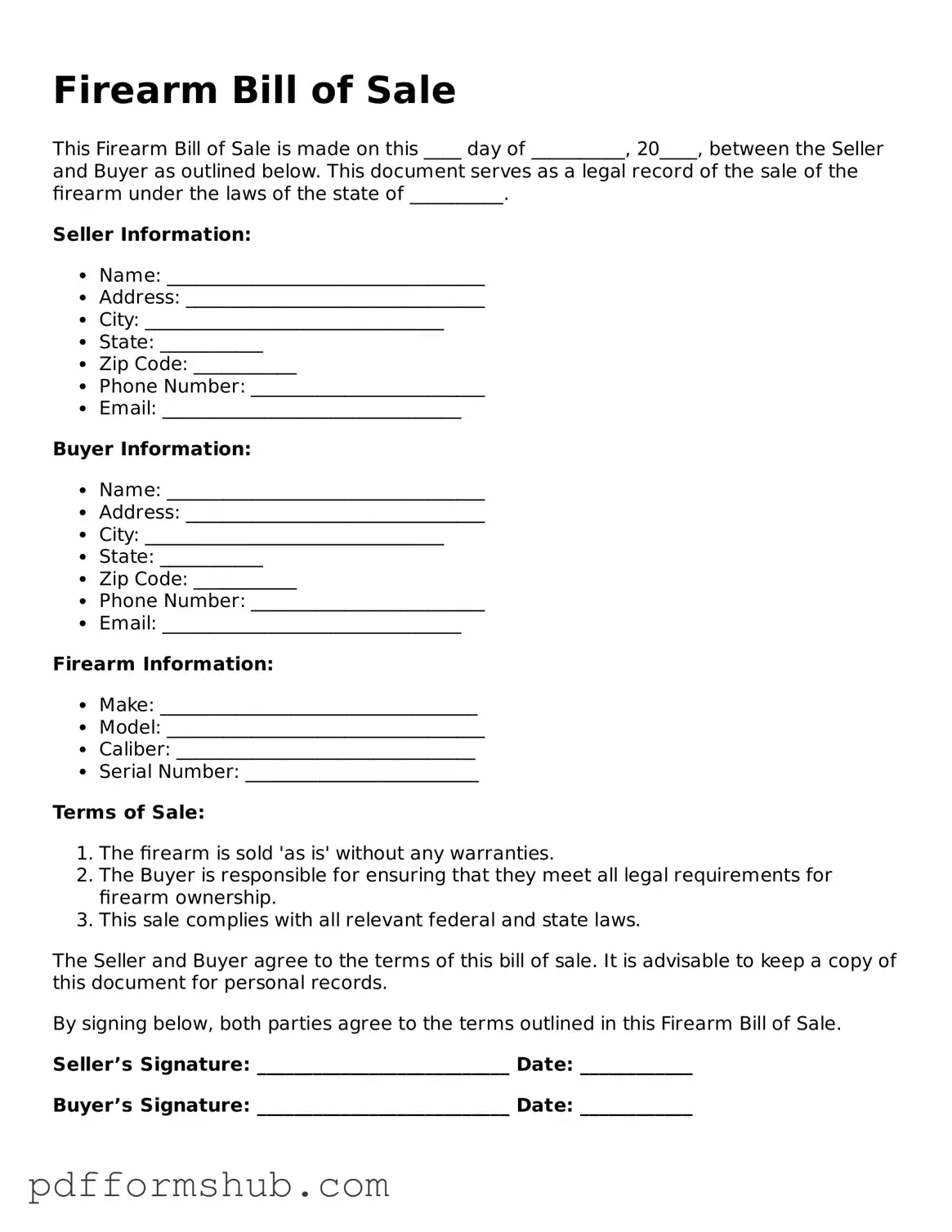Valid Firearm Bill of Sale Form
The Firearm Bill of Sale form is a legal document used to record the transfer of ownership of a firearm from one individual to another. This form serves as proof of the transaction and includes essential details such as the buyer's and seller's information, the firearm's description, and the terms of the sale. Understanding this form is crucial for ensuring compliance with local laws and protecting both parties involved in the transaction.
Ready to complete your Firearm Bill of Sale? Click the button below to get started!
Customize Form

Valid Firearm Bill of Sale Form
Customize Form

Customize Form
or
Free PDF Form
Short deadline? Complete this form now
Complete Firearm Bill of Sale online without printing hassles.